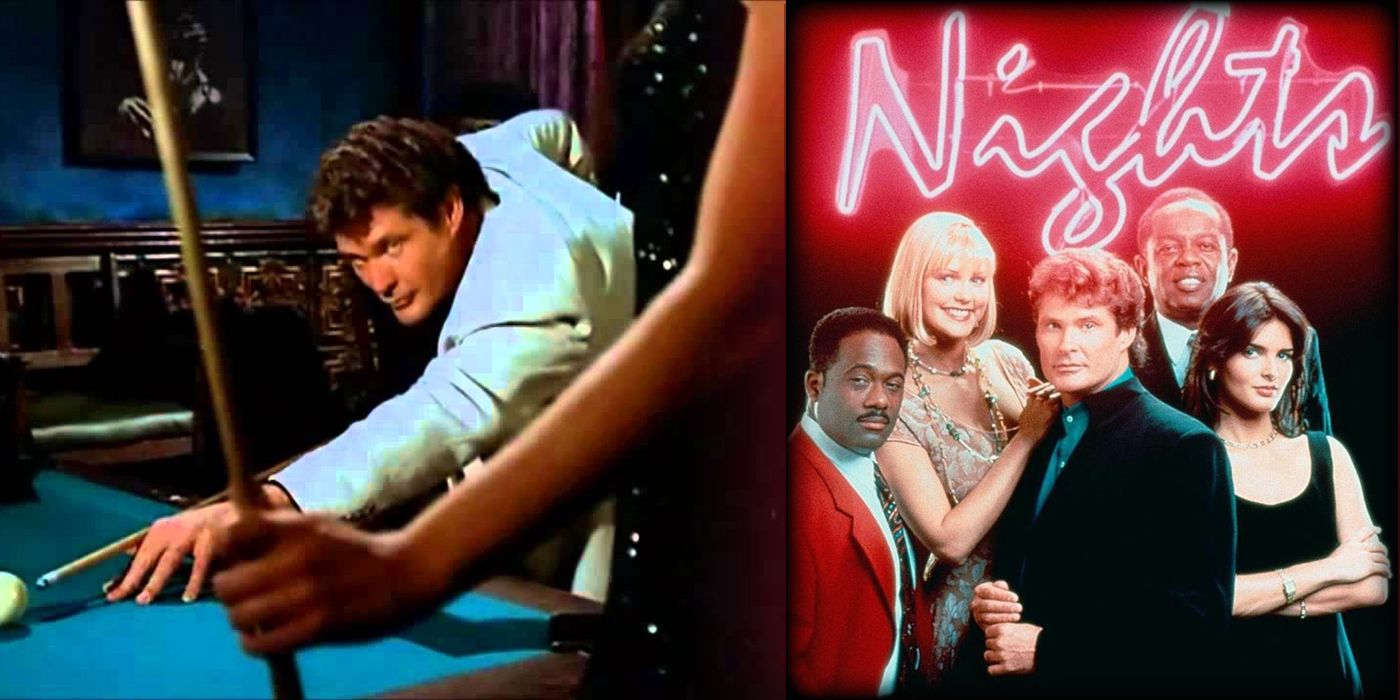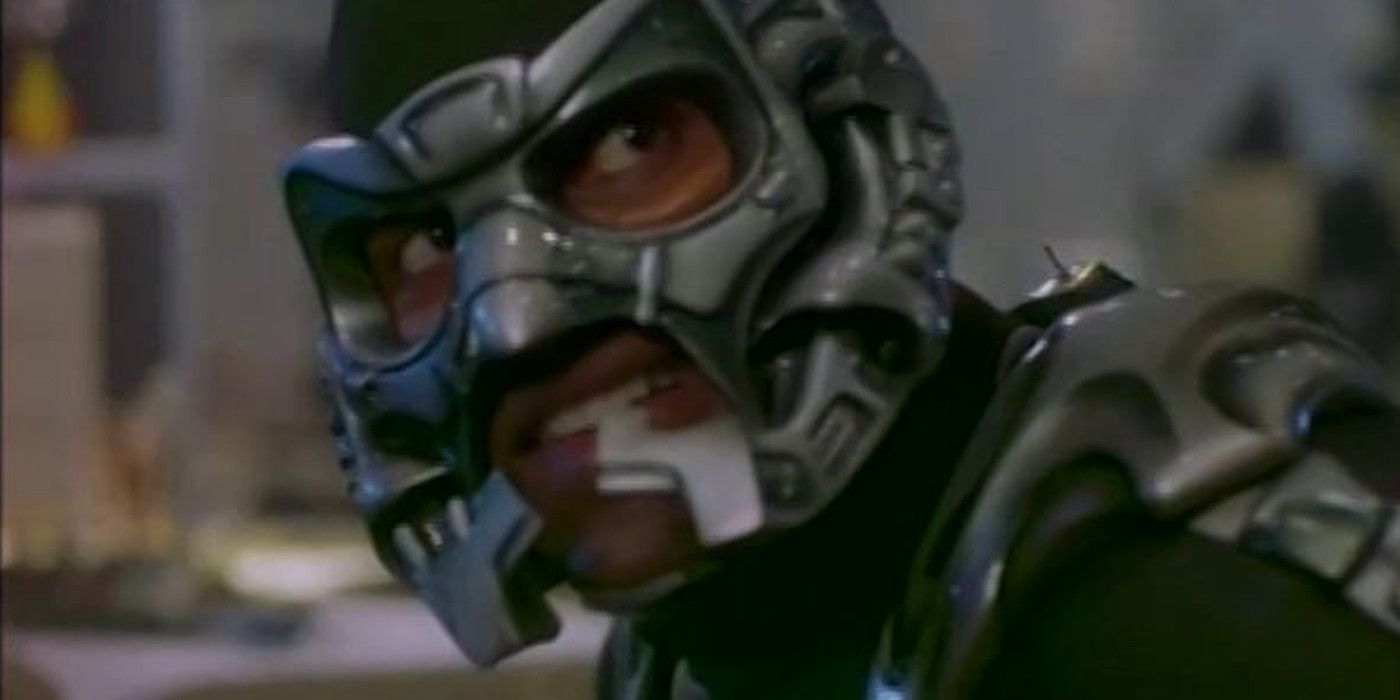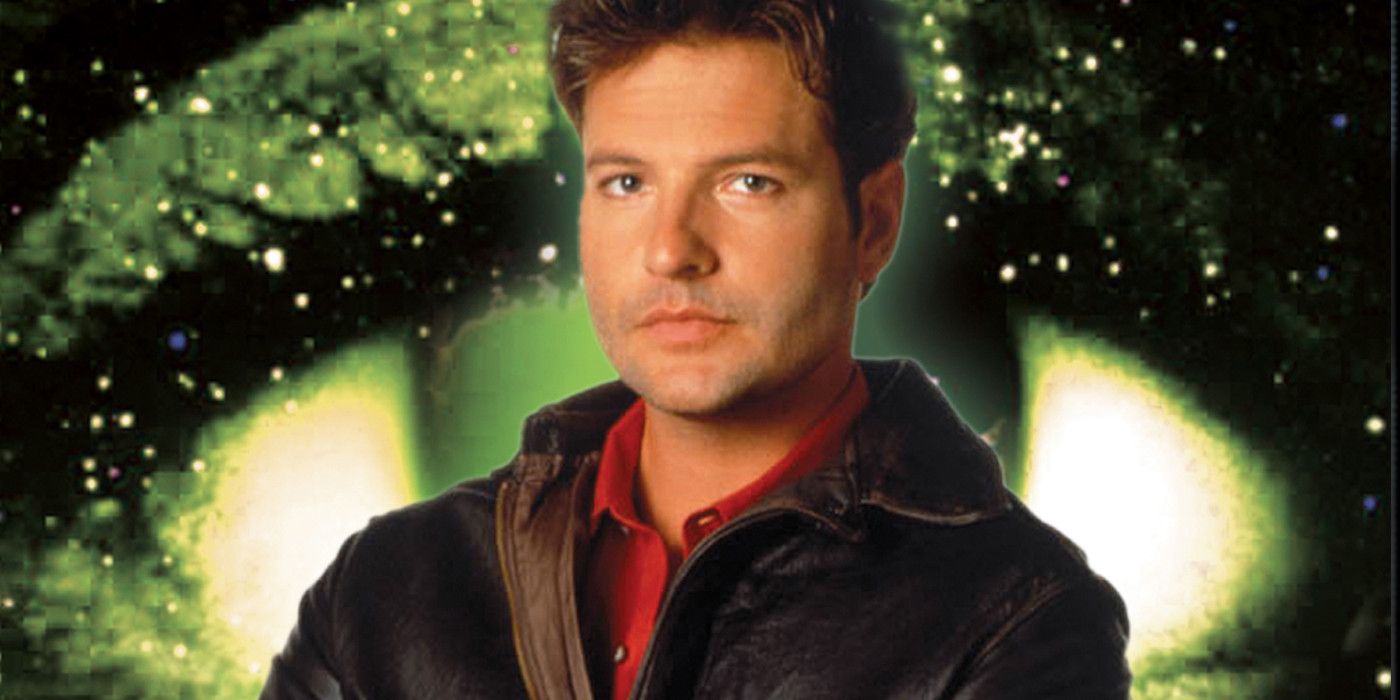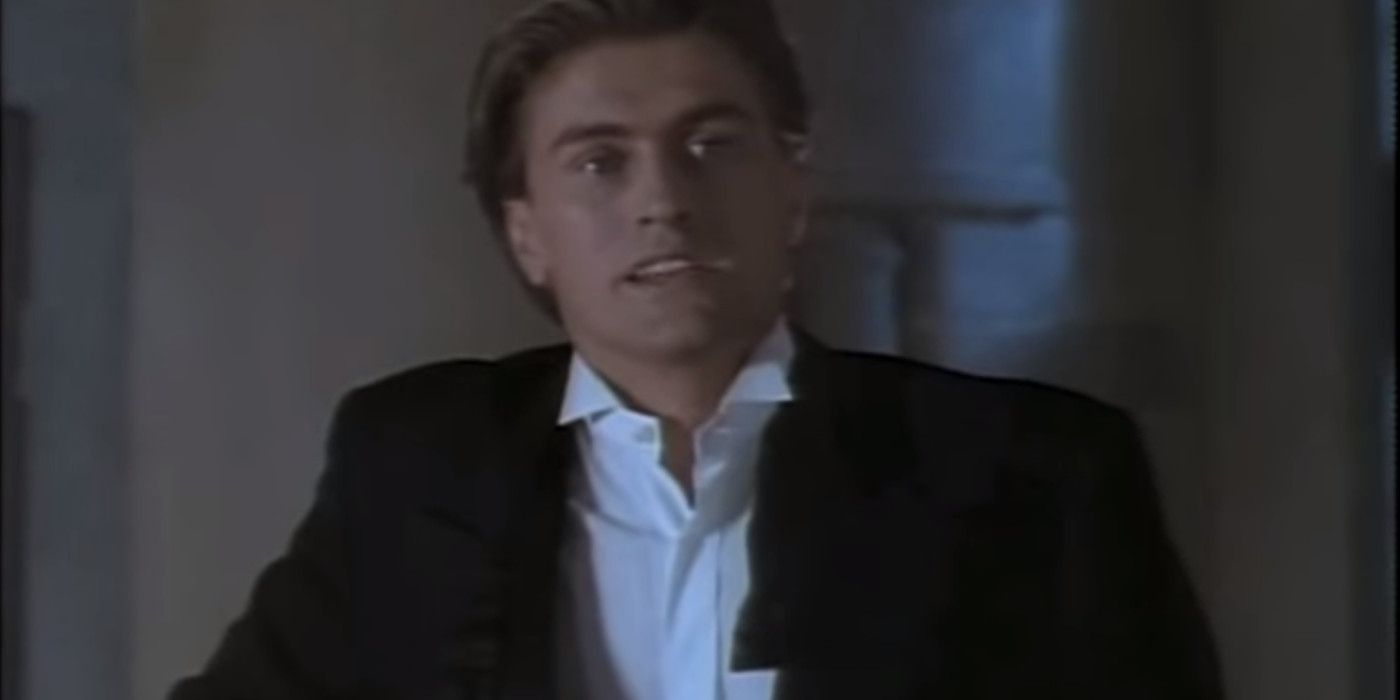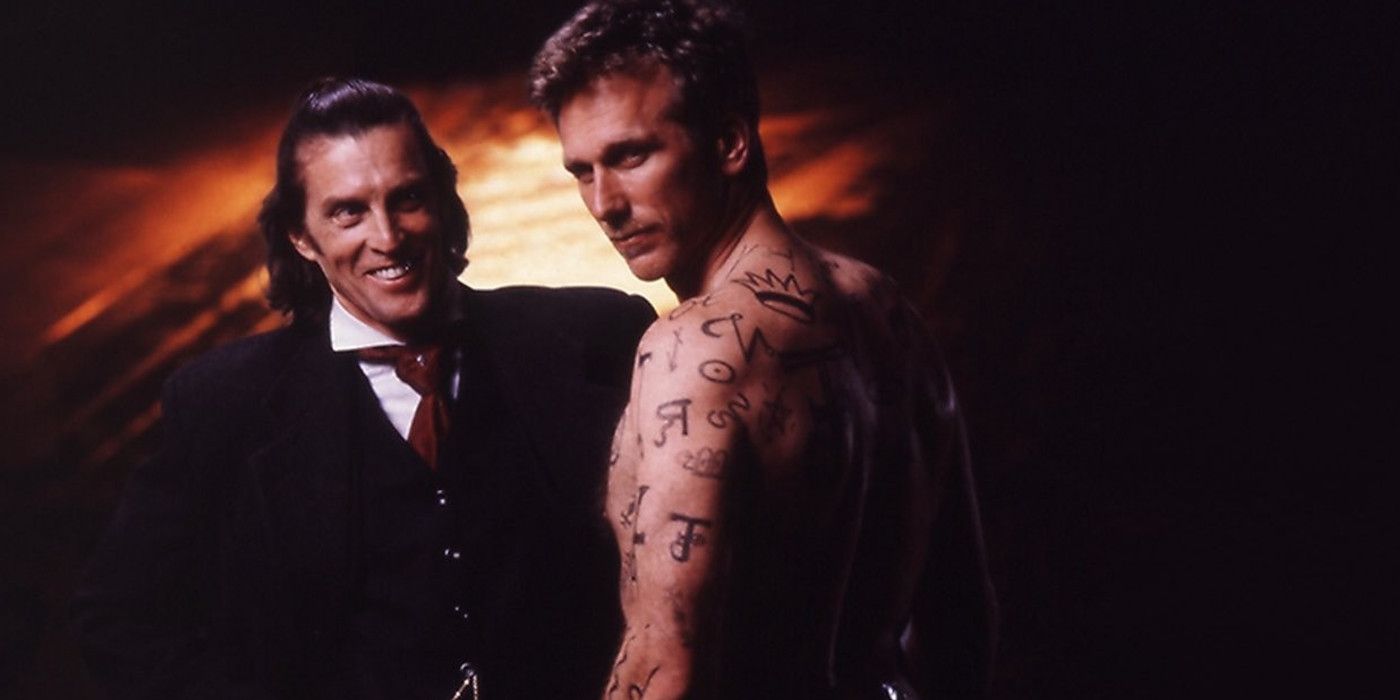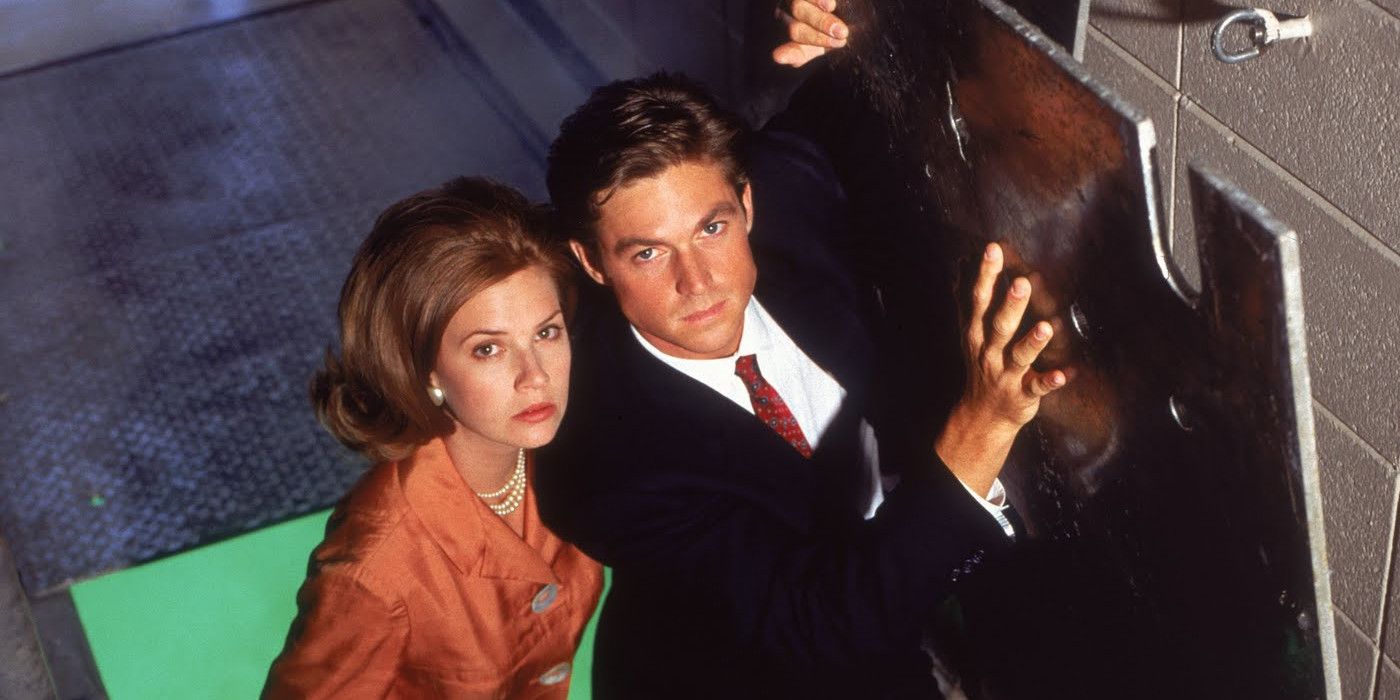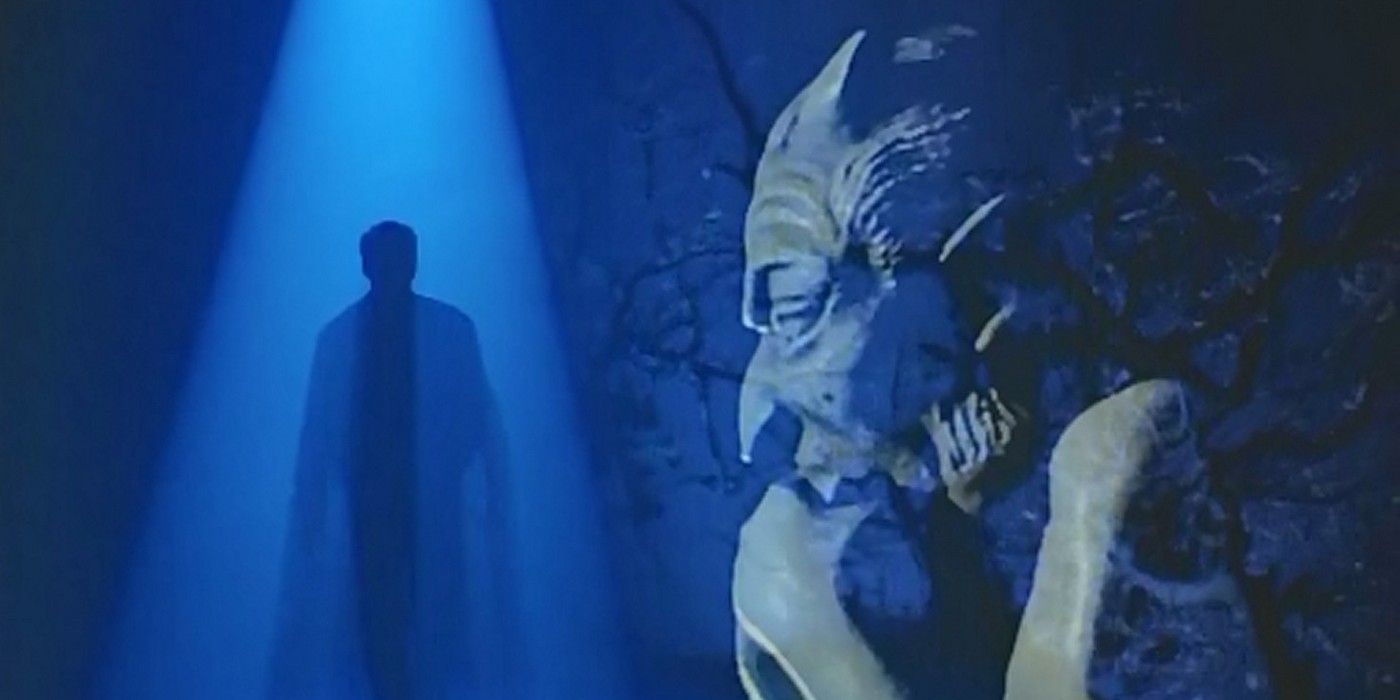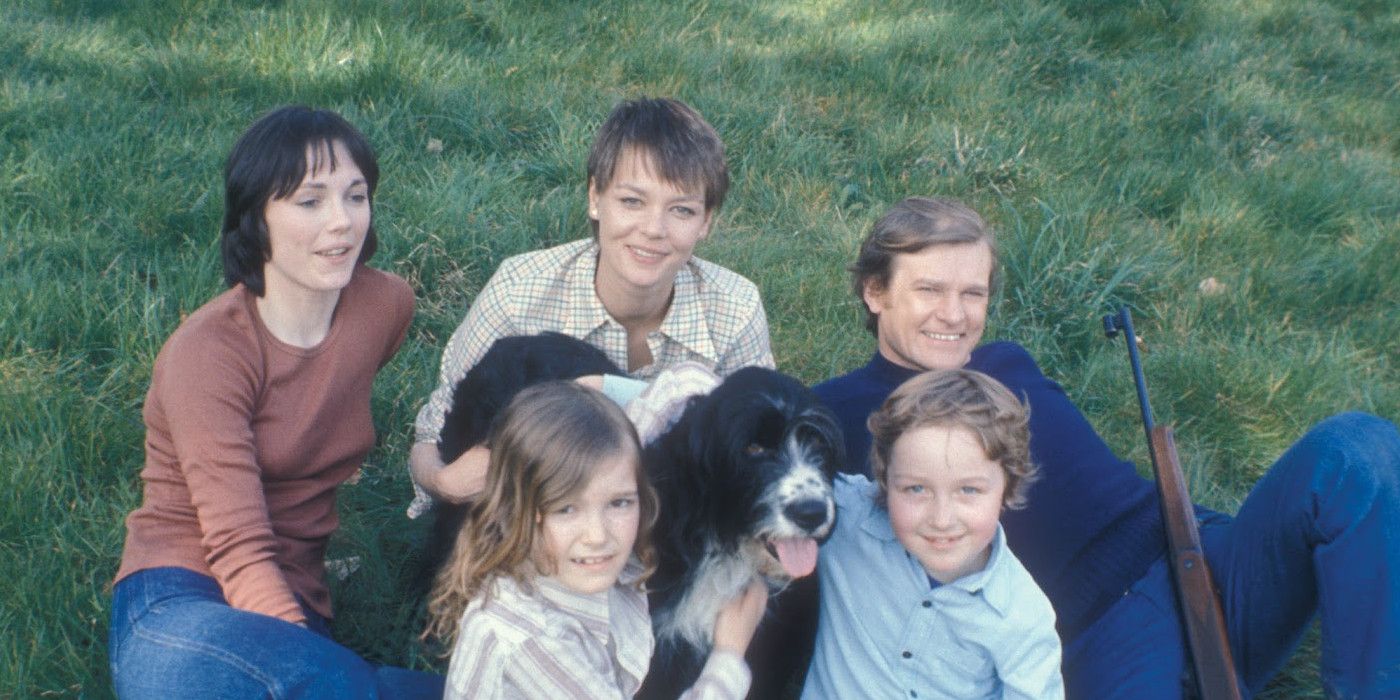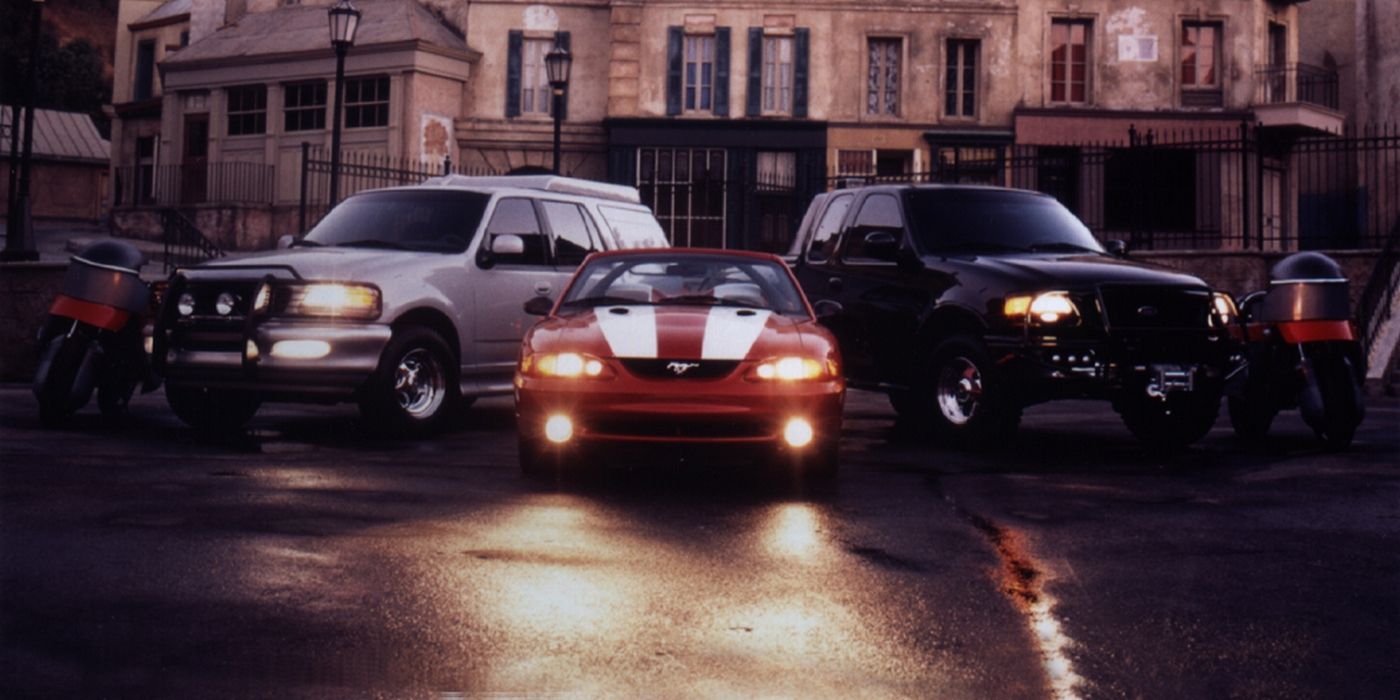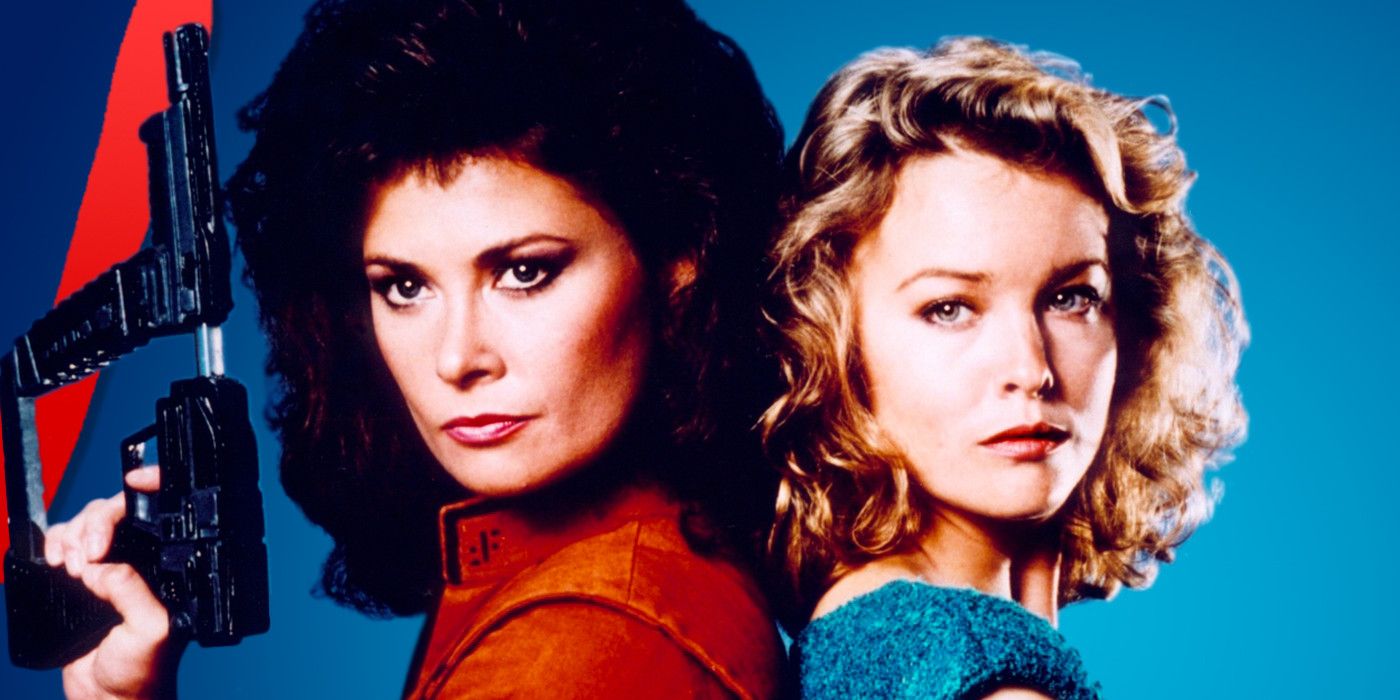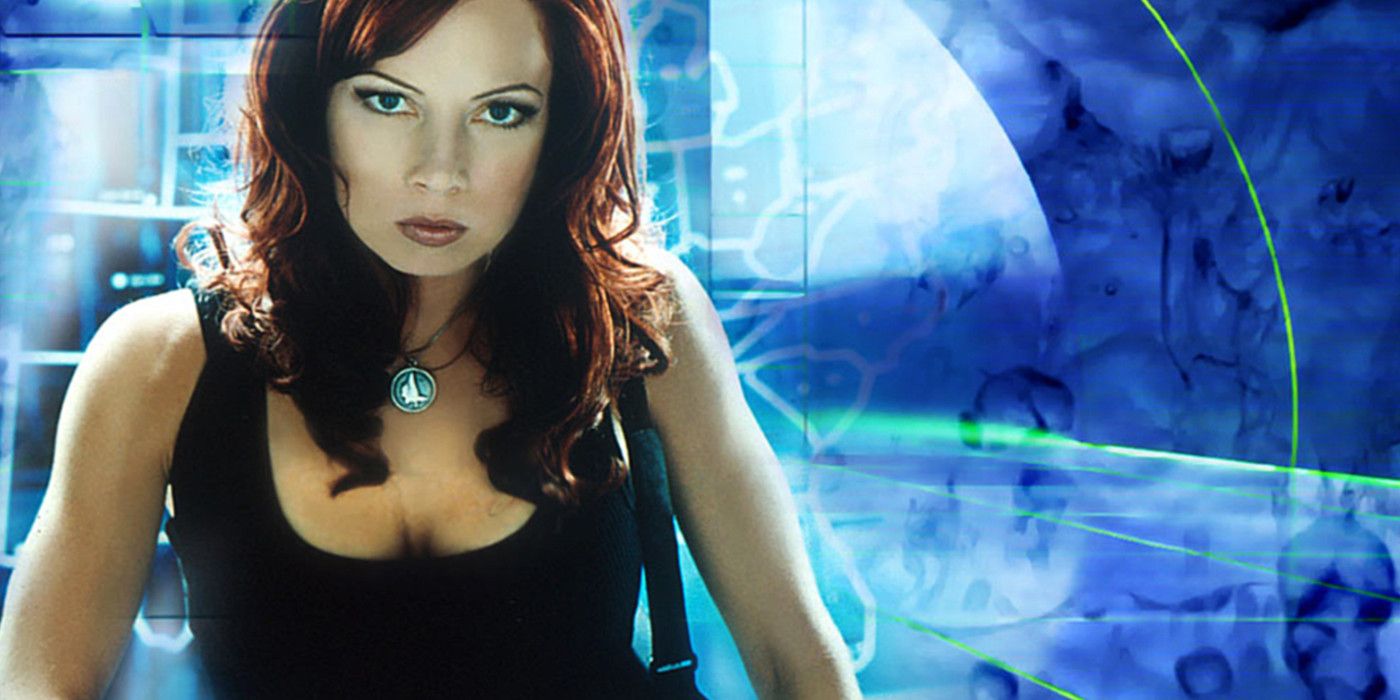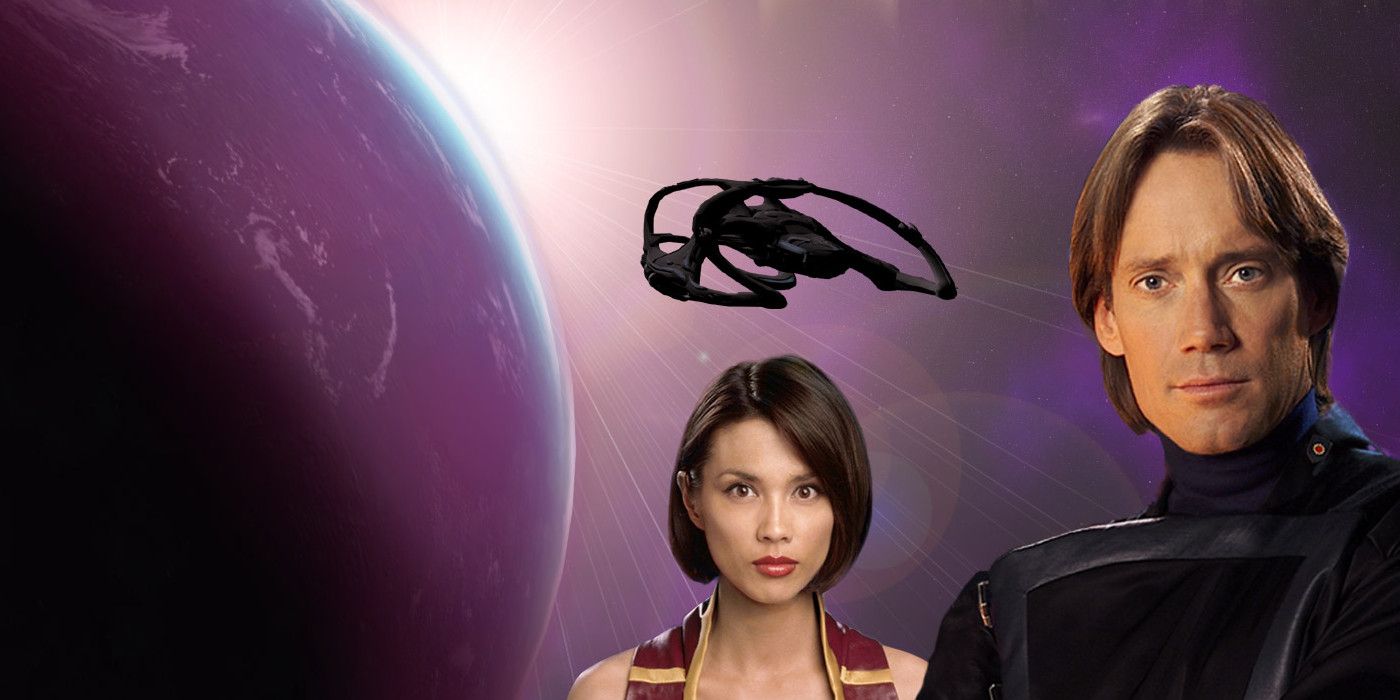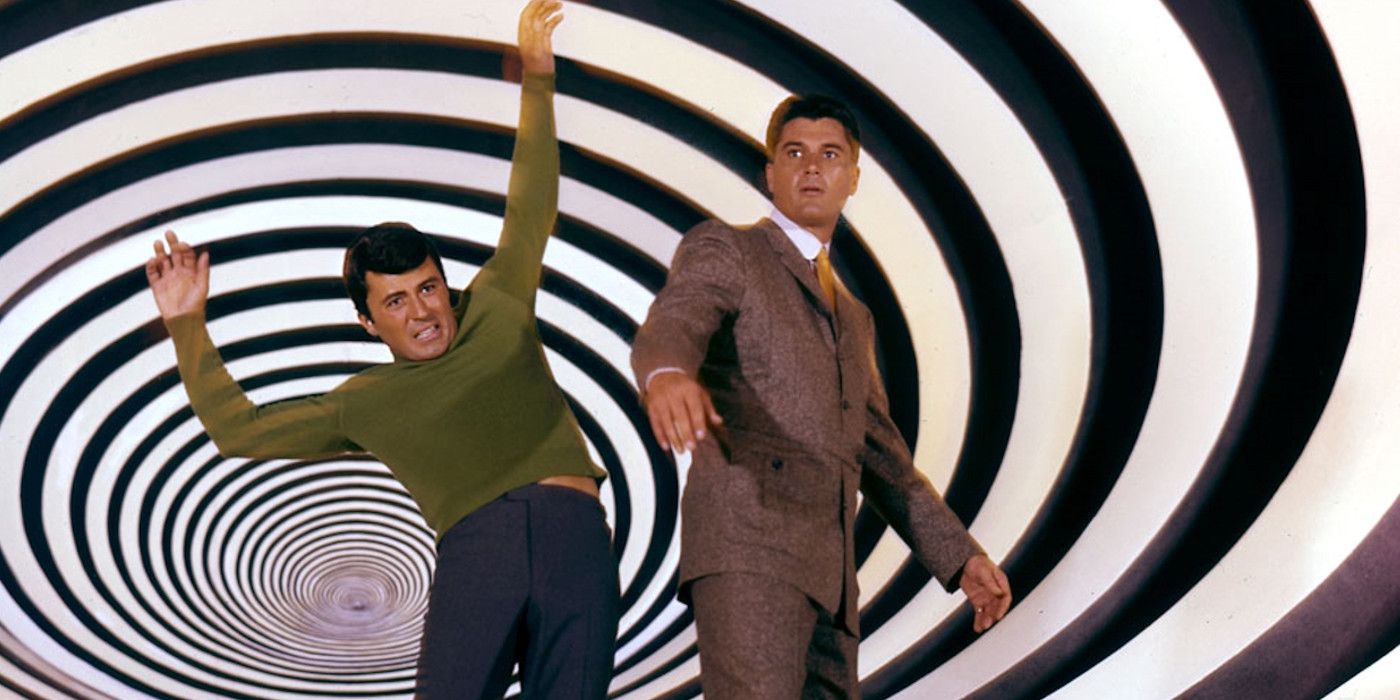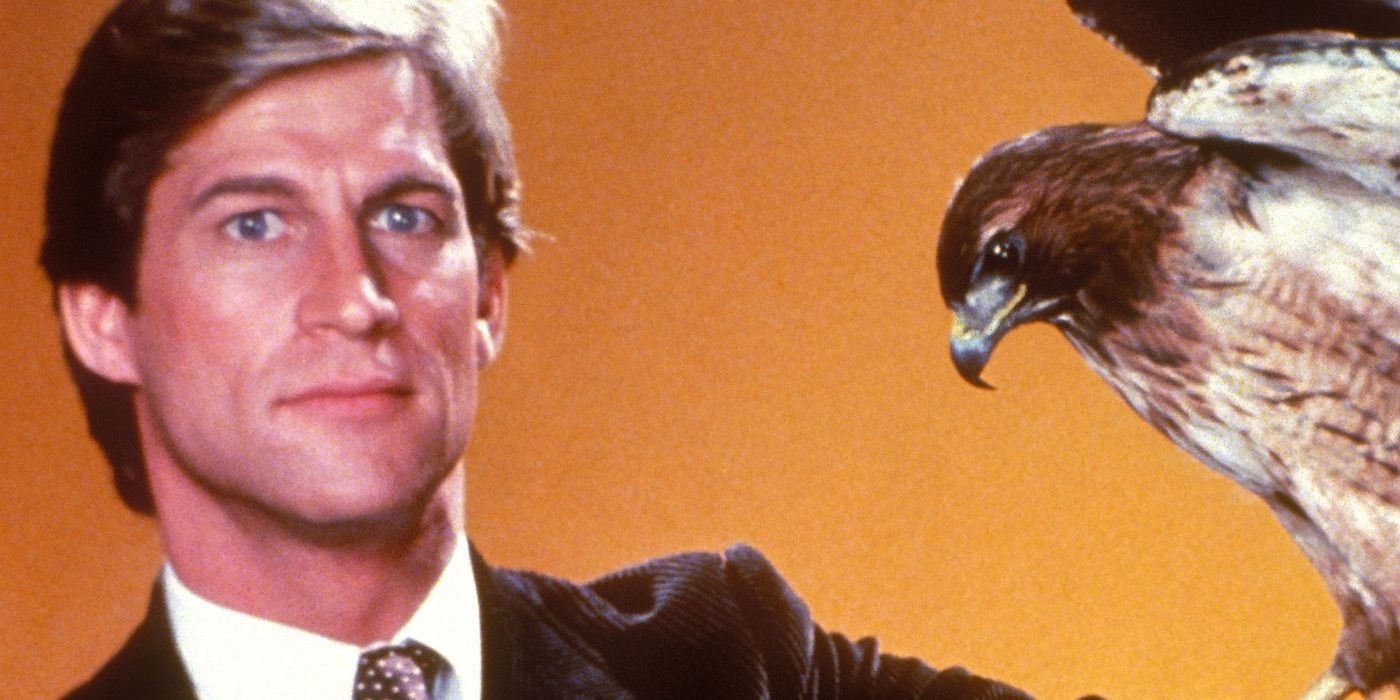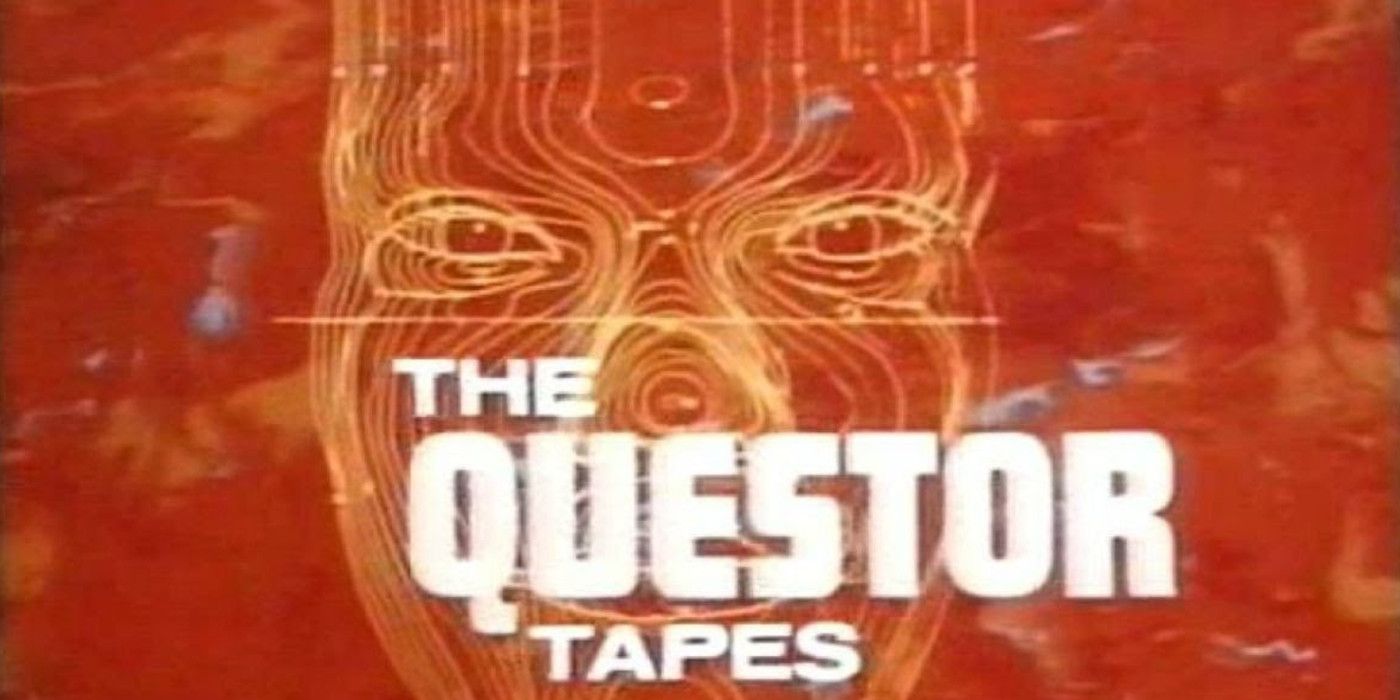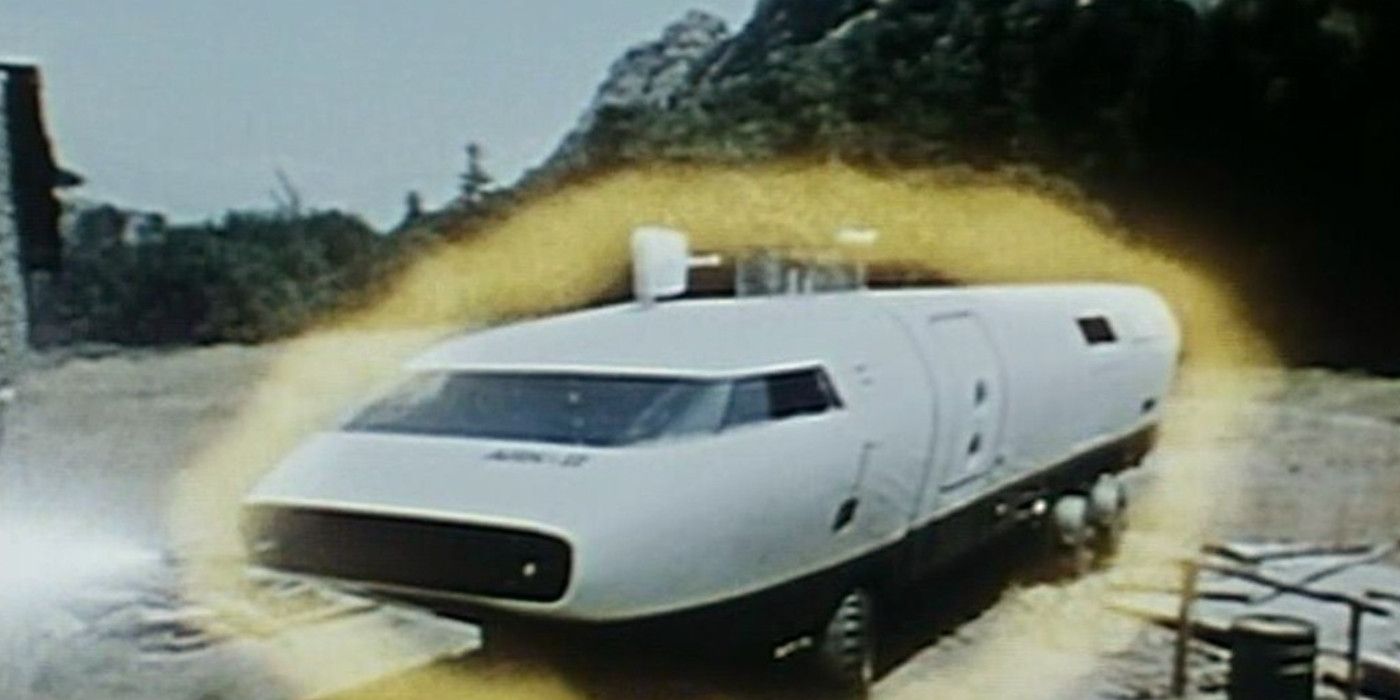Science fiction has been a staple of television almost since the day man fired up his first vacuum tubes. Shows like Star Trek, Doctor Who and The X-Files helped popularize the genre, and in a technology-driven era, science fiction feels more prescient than ever. For all the successful sci-fi television though, and for all the ways the genre has changed the zeitgeist, science fiction often goes overlooked in terms of its contribution to modern storytelling. After all, how many devoted fans still watch—or even remember—Picket Fences as opposed to The X-Files or Star Trek: Deep Space Nine?
On the other hand though, television, in particular, has spat out some very bad science fiction over the years. For the most part, these shows slip into the ether, forgotten by modern audiences. Other shows feature concepts way ahead of their time, and don’t receive the credit they deserve for advancing the genre. The shows compiled here represent both groups—the heaven-sent and the godawful. Regardless, they’ve all fallen into obscurity today, sometimes remembered only by a tight group of devoted fans who relish lampooning their ill-fated existence. Submitted for your enjoyment, derision, nostalgic glow and perplexed confusion, find here 15 Sci-Fi Shows You Totally Forgot Existed.
15. M.A.N.T.I.S.
Fox tried for sci-fi superhero glory in the '90s with this odd piece. The show centered on Dr. Miles Hawkins, a paraplegic scientist who develops an exoskeleton to regain the use of his legs. Said technology also grants him super strength, though he can only wear it for limited amounts of time. Rather than go public with the exoskeleton, Hawkins becomes M.A.N.T.I.S., a trench coat clad superhero who jet sets around the world in an amphibious hovercraft.
The brainchild of Spider-Man director Sam Raimi and Batman screenwriter Sam Hamm, M.A.N.T.I.S. struggled to find an audience from the beginning. Perhaps fearing that audiences perceived the show as “too ethnic”, the network dropped several black characters throughout its run. The show also changed focus from more of a straight action premise to being more genre-oriented. Later episodes saw Hawkins time traveling and journeying to parallel universes. The changes didn’t save the series—Fox axed M.A.N.T.I.S. after a single season, though it still has something of a cult following today. Maybe a reboot is in order!
14. Time Trax
The early 1990s saw Quantum Leap become a solid cult hit for NBC, thus, in the nature of television production, copycat series began to pop up on rival networks. In syndication, Time Trax tried to capture the Quantum Leap audience. The show followed police Captain Darien Lambert in his efforts to track down 100 criminals in the year 2193. The catch: said fugitives escaped prison via a time machine that sent them back to the late 20th century. Fearing that they could alter history, Lambert travels back in time with a holographic computer named SELMA. SELMA took the form of a young woman, and became Lamabert’s only companion in his travels.
Time Trax ran in syndication for two seasons and, despite taking on mad scientists and time travelling neo-Nazis, Darien Lambert and SELMA never found their audience. Low production values and uneven writing didn’t help, and the Australian-produced show wrapped in 1994. A tie-in Sega game almost made it to shelves, but the cancellation of the show prompted the game's cancellation as well. It has since become a notorious unreleased game… possibly better known than the show that spawned it.
13. Dracula; The Series
Dracula: The Series came out of the syndicated TV boom prompted by the success of Star Trek: The Next Generation in 1990. The show took inspiration from The Lost Boys. It revolved around a group of kids and their eccentric uncle (a descendant of Dracula’s nemesis Van Helsing) who did battle with the mysterious billionaire Alexander Lucard, better known as… well, just spell the name backwards. Filmed in Canada, the show would help attract smaller US productions to film north of the border. IT featured a number of noted character actors, as well as actress Mia Kirshner, better known for her later role on The L Word.
Less a horror show than a supernatural/sci-fi adventure series, Dracula: The Series foreshadowed the later success of titles like Buffy the Vampire Slayer and True Blood. Episodes featured everything from vampire cures to sunlight guns, and the intentionally light tone helped the show find an audience with adolescents. It lasted two seasons in syndication before getting staked.
12. Brimstone
Fox and Chris Carter had an unlikely success with The X-Files, and as the show became a full-blown sensation, the producer found himself catapulted to the top of the showbiz heap. Carter’s newfound stardom had its own perils, however: he found himself cast as the resident sci-fi master. With The X-Files still going strong and Millennium struggling to find an audience, Fox decided to try again with the sci-fi/horror series Brimstone. The show had an intriguing premise: a dead cop makes a deal with Satan to return to Earth and track down a number of damned souls that have escaped from Hell. Noted character actor John Glover played Satan with a touch of sadistic giddiness, and, in one of the show’s best twists, also played an angel (the show was ambiguous as to the character’s nature).
The dark premise of the series made it a hard sell in 1999, despite heavy promotion by Fox and pairing with The X-Files programming block. Damned by low ratings, it lasted only one season.
11. Dark Skies
With The X-Files going from slot-filler to cult show to full-blown phenomenon, the reactionary world of television went on about crafting imitators to cater to the same audience. NBC contributed Dark Skies, which starred Eric Close as John Loengard. Building on many of the same conspiracy theories and alien legends that fueled The X-Files, the show integrated numerous historical events like the assassination of John F. Kennedy into the context of alien conspiracies. The series also introduced the Majestic 12 as a sort of shadow government working to fight an alien species called The Hive.
If all that sounds familiar to fans of The X-Files now, it sounded very familiar in 1996. Dark Skies had some great production values and effects going for it, but it missed one key element that made The X-Files so memorable: great characters. The show ran a single season before fading into static, though the original pilot occasionally turns up as a TV movie on cable channels.
10. Baywatch Nights
Another X-Files doppelganger, Baywatch Nights, as the name would imply, spun off from the then-popular series Baywatch. Star David Hasslehoff co-created the series, which saw his character leaving his job as a cop/lifeguard to start a private detective agency with a friend. The show began as a Hasslehoff vehicle, with his character Mitch Buchannon investigating cases in standard police procedural style. His agency operated out of a nightclub (?!) in order to keep plenty of T&A on screen for viewers.
With ratings anemic, the producers decided to retool the show to more closely resemble the then-hot X-Files. Episodes would feature Mitch hunting down demons, vampires, aliens, and of course, sea monsters. Hey, it was Baywatch after all! Unfortunately, the move made the show into a laughing stock rather than a hit, and Baywatch Nights washed out following its second season. Hasslehoff slouched back to Baywatch, where his character assumed captain duties of the force.
9. Survivors
American audiences tend to overlook this awesome British series, which debuted on the BBC in 1975. In a premise far ahead of its time, Survivors considered a world ravaged by a man-made disease called The Death, which has wiped out almost the entire human population. With the plague having killed off its victims in swift fashion, the few remaining living people must band together to restart civilization anew, and resort to ancient farming and toolmaking techniques to survive. Amidst the lawlessness and desperation, several characters search for lost loved ones, and try to reestablish communications with the world at large.
In true British fashion, Survivors ran only three seasons before shutting down. Nevertheless the show became a cult hit. Actress Carolyn Seymour, who played one of the show’s leads, would go on to become a successful genre actress, taking noted roles in Star Trek: The Next Generation and Quantum Leap. The show’s enduring popularity would also pave the way for latter-day hits like Stephen King’s The Stand and its subsequent miniseries, and Jericho. In 2008, the BBC produced a reboot, though it never achieved the popularity of the original.
8. Team Knight Rider
And speaking of David Hasslehoff, Knight Rider got the revival treatment in 1997. Picking up 20 years after the events of the original series, the show introduced a new group of five crime fighters, each with a souped-up car equipped with a talking AI. Each vehicle had different features from the others, and personalities to match their drivers. Throughout the show, the team tracked down drug lords, assassins, and other rogue AI-equipped vehicles in a similar fashion to the original show.
NBC ran the series as it had the original Knight Rider, though the show also ran in syndication. The team-up concept tried to capitalize on the then-popular Mighty Morphin’ Power Rangers, but with prime time production values. With a cast that included John Kassir, Tom Kane, and future Oscar nominee Nia Vardalos as the voices of the cars, the show foreshadowed the later revival/reboot trend that ties classic cult series to new offerings. Despite the clever premise, Team Knight Rider never found an audience, perhaps in part because it lacked the participation of Hasslehoff, though the team regularly referred to his character. NBC sent the series to the scrap yard after one season.
7. V The Series
NBC had a runaway hit with the first V miniseries, a show which reimagined the rise of Nazism as an infiltration by aliens. The network commissioned a sequel, V: The Final Battle, which picked up after the action of the first series, and proved less a finale than a lead in to a new series. V: The Series debuted in 1984 after V made such an impression, and most of the original cast returned as well. The story picked up a year after the end of V: The Final Battle, with the American human resistance having rebuffed the alien invaders. The resistance struggles to free the rest of the world, as human traitors ally themselves with the aliens in a bid to seize power.
Continuing the trend that began in V: The Final Battle, V: The Series strayed from the Nazi-metaphorical roots of the original miniseries, opting instead for more standard sci-fi goofiness. The enormous production budget, which had proven manageable for a miniseries, pushed the per-episode cost for V: The Series through the roof. The show suffered a notable decline in the quality and frequency of effects, which turned off viewers. The show got cancelled after the first season, though it did little to vanquish the cult of V.
6. First Wave
The Sci-Fi Channel (before it became SyFy, which sounds more like a disease) waded into original programming in the late 1990s with First Wave. Produced by Francis Ford Coppola, First Wave got a full three-season order just after the show began to air. Starring Traci Lords, the show combined elements of The X-Files and its spinoff/sister show Millennium into a sci-fi thriller. The series followed security expert Cade Foster as aliens began a full-scale invasion of Earth in three phases. Foster discovers that Nostradamus prophesied the invasion in his writings centuries before, and teams up with a renegade alien and a computer hacker to fight off the invasion before it kills millions.
First Wave became one of the last traditional first-run syndication shows to make it to air, as cable networks thirsty for original programming began to devour their content. Unfortunately, it never quite found an audience. Sci-Fi’s bold choice to order three seasons of the show kept it on the air until 2001, when the network dropped it from its schedule.
5. Andromeda
In 2000, Gene Roddenberry’s widow Majel Barrett (yes, Nurse Chapel and the Computer Voice) worked with writer Robert Wolfe to revise and develop a series Roddenberry had conceived in the 1970s. Andromeda followed the adventures of Dylan Hunt, played by former Hercules star Kevin Sorbo. In the distant future, three galaxies—including the Milky Way—have allied to form the Commonwealth, a utopian intergalactic government. War breaks out with an alien race called the Magog, and in a particularly bloody battle, Hunt and his ship, the Andromeda, get frozen in time for 300 years. Upon waking in the even more distant future, Hunt resolves to use his ship to restore the now-fallen Commonwealth.
Originally airing in first-run syndication, The Sci-Fi Channel picked up Andromeda to complete an admirable five year run. The show never became a major hit, though it earned a devoted fanbase on its own merits. After wrapping its run, the show drifted into obscurity, overshadowed by more cutting edge sci-fi like Battlestar Galactica.
4. The Time Tunnel
Sci-fi icon Irwin Allen had a great run in the 1960s with popular genre TV shows like Fantastic Voyage and Lost in Space. The Time Tunnel focused on a group of scientists working on a secret government project to build a time machine. When a crusty senator threatens to cut funding to the machine, one of the scientists activates a time portal and sends himself into the past. Another scientist vows to rescue him, and though he is able to join his colleague, the time machine proves unstable, sending them meandering through the past and future, unable to return home. The show featured lavish (for the time) effects and production value, and saw the characters visiting notable historical events like the Pearl Harbor bombing or the sinking of the Titanic.
Time Tunnel captured solid ratings on Friday nights—a feat in and of itself—though executives at ABC never quite warmed to the show. Originally slated for a second season, ABC reneged on its promise, and cancelled the show after its first season ended, leaving the main story unresolved. The Time Tunnel maintained a strong cult following, and two attempts at reboots—one at Fox in 2002, and one at SyFy in 2006—generated a good deal of buzz before getting passed over by their respective networks. To date, the show has a strong following of '60s sci-fi nostalgia buffs.
3. Manimal
Oft-cited as one of the worst TV shows ever, Manimal debuted in 1983 on ABC. The story followed Simon MacCorkindale as Dr. Jonathan Chase, a man with the power to morph into any animal…though budget limitations usually dictated that he turn into either a hawk or a panther. Chase would go about using his powers to fight crime, becoming something of a superhero and joining with a beautiful female police detective to solve cases.
Unfortunately the writing and production values didn’t quite support the premise, and Manimal first aired to dreadful reviews and disastrous ratings. Created by Glen A. Larson of Battlestar Galactica and Knight Rider fame, the show gained notoriety as one of the worst ever to air. Manimal died after eight episodes, though it still maintains a cult following of fans of campy TV. Among them: actor Will Farrell, who has shown interest in a big-screen reboot as a comedy.
2. The Questor Tapes
Before Gene Roddenberry made a cottage industry out of his success with Star Trek and associated memorabilia, the creator of the series continued to try his hand at television. Pigeonholed after the cult of Trek, Roddenberry toiled in the sci-fi genre, much to his frustration. Projects like The Nine never got past the scripting phase, while pilots like Genesis II underwent heavy reedits to become TV movies after networks found them unsatisfying. One such project, The Questor Tapes, actually did come close to becoming a new series.
The Questor Tapes had trouble from the start. The premise followed an android named Questor as he traveled the world struggling to understand humanity. Roddenberry had pitched the series to Leonard Nimoy, who accepted the lead role. As the show moved into production, however, Roddenberry cast actor Robert Foxworth in the lead, subsequently dropping Nimoy (the two men had notoriously strained relations thereafter). Though the series featured a number of Roddenberry trademarks, including Questor’s puzzlement over man’s history of war and the character’s voracious sexuality, the pilot episode failed to attract an audience. Conflict with Universal prompted Roddenberry to walk, though the studio had granted The Questor Tapes a proposed 13-episode first season. The failure of Questor effectively ended Roddenberry’s TV producing career, and he would spend years making a living on the college lecture circuit before Star Trek: The Motion Picture would land him behind the camera again.
1. Ark II
Animation maestro Lou Scheimer, head of Filmation Animation, waded into live action in the mid-1970s. Filmation Animation, responsible for shows like He-Man, Shazam and Jason of Star Command, tried its hand at a Saturday morning live-action sci-fi series in 1976. An unusually dark premise for kiddie fare, Ark II chronicled the voyages of the eponymous mobile labratory, an ark designed to preserve mankind’s technological and philosophical achievements after mankind drifted back into the dark ages. The crew included a human family, and a psychically advanced chimpanzee capable of speech. Throughout the show’s run, the main characters would encounter plague, feral children, and superstitious human settlements, all while struggling to preserve the Ark and its secrets.
CBS aired the show’s 15 episodes, though it never proved a ratings hit. Ark II ended after one season, though not before attracting a rabid fanbase devoted, much like the show’s central characters, to preserving the adventures of the Ark II for future audiences.
---
Did we forget to mention your favorite forgotten sci-fi show? Tell us in the comments!

